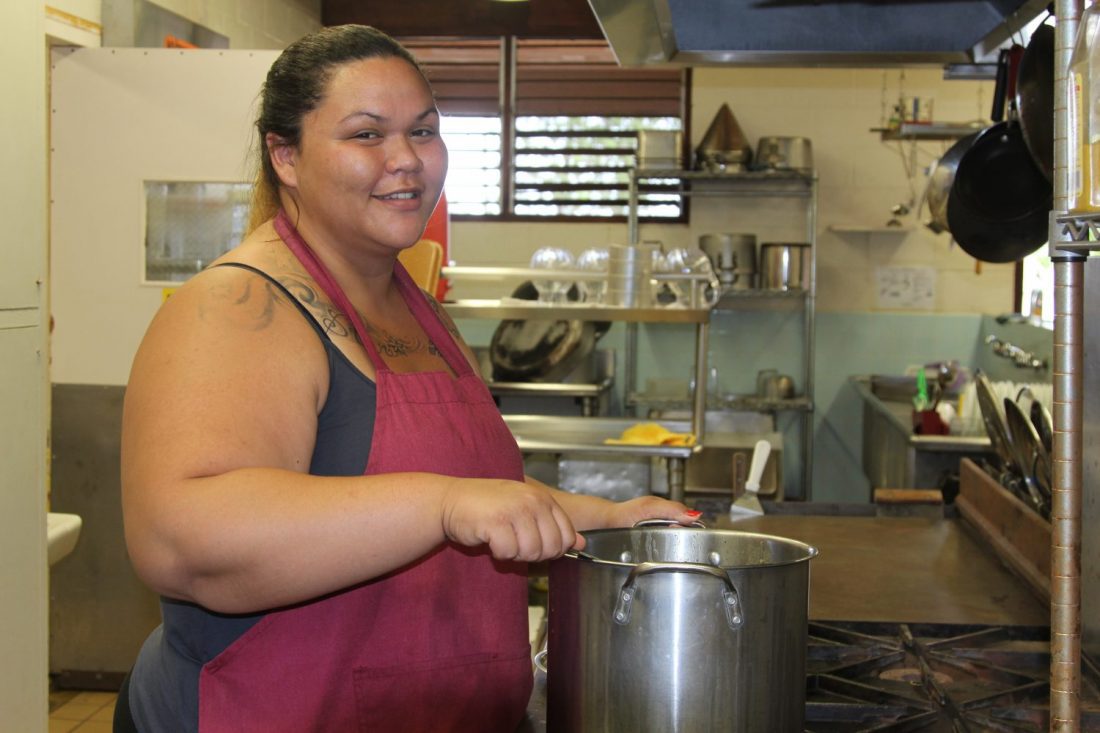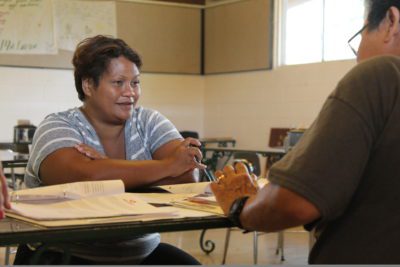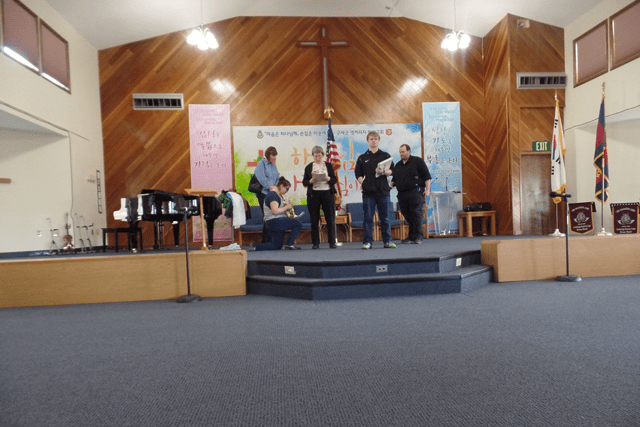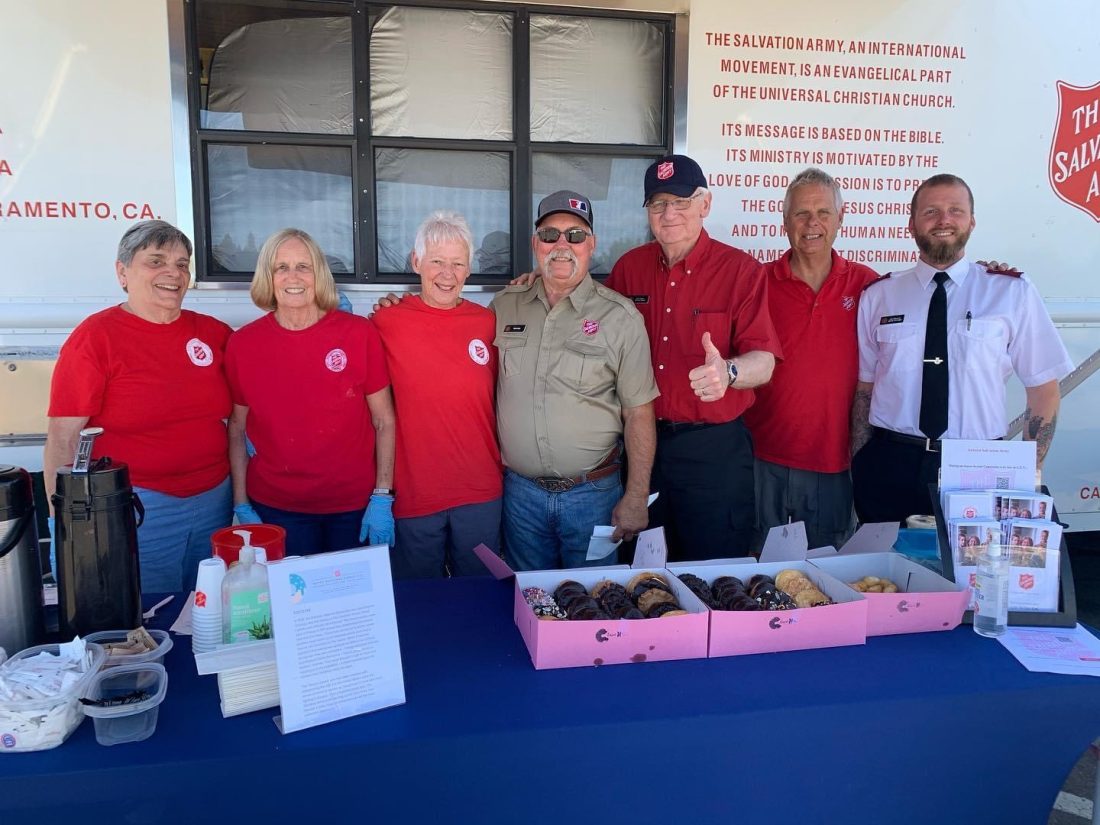Listen to this article
Listen to this article
Loading
Play
Pause
Options
0:00
-:--
1x
Playback Speed- 0.5
- 0.6
- 0.7
- 0.8
- 0.9
- 1
- 1.1
- 1.2
- 1.3
- 1.5
- 2
Audio Language
- English
- French
- German
- Italian
- Spanish
Open text
culinary training for independence. women in recovery find new skill, empowerment in cooking. five mother sauces. butter versus margarine. paneer cheese and fromage blanc. these aren’t lessons from a gourmet cookbook. they’re straight out of a treatment facility at the salvation army. a partnership between the salvation army family treatment services (fts) program on o‘ahu and touch a heart has created an intensive culinary training program for women nearing graduation from the program. when touch a heart approached fts to start a program that would allow women emerging from treatment to apply for jobs in the food industry, it met a need to help the women establish financial independence, said candace pang, fts clinical director. the program, which launched in may 2015, enrolls up to four clients during a 12-week period. each day’s lesson begins with a life skills component and ends with a cooking activity. “we realize that the women we have were broken at one point in their lives,” said colin kumabe, touch a heart instructor and director of operations. “in order for them to learn something new and exciting, we have to empower them with the knowledge first and encourage them to take risks…in our case, we are helping these women feed themselves and their families for life.”. in this way, pang said, touch a heart’s methodology helps accelerate clients’ recovery, but it also prepares them for the workforce. “it’s not only about the culinary skills,” she said. “the women built confidence, feelings of accomplishment, understanding about commitment to doing something, showing up. it was more than cutting carrots in five different ways. it was a bigger lesson for them.”. according to kumabe, the small class sizes help the staff personalize the experience and tailor the curriculum to clients’ individual palettes. occasionally, they even venture out of the facility to learn how to price vegetables, meats and spices around town. “helping these women prioritize healthier options will help them save money and instill healthy habits in their children,” kumabe said. for instance, in one lesson, kumabe taught students how to use leftovers from one meal to make beef and vegetable soup the next day. “it’s little tips that show them how to save money and feed their families,” he said. the course couldn’t have been more timely for 46-year-old de ann, an fts client nearing graduation. prior to arriving, de ann was homeless for four years, battling a methamphetamines addiction while caught up in an abusive relationship. “i’m so thankful that i finally feel stable,” said de ann, who hopes to get a job at a restaurant and start cooking for her family at home. “being able to have these skills under my belt will help me find a job that i truly enjoy.”. since the fts program is the only one in hawaii that allows women in recovery to be with their children, another client, ana, noted how much the program has helped her bond with her baby. “colin showed us how to incorporate our kids into preparing dinner, like having them mix the salad at the table, little things like that,” she said. “we’re all trying to be better people, better mothers. it’s great to get tips on teaching our kids healthy habits and bond with them at the same time.”. touch a heart’s curriculum has already helped two recent fts graduates secure jobs at local restaurants. in light of early successes like these, the walmart foundation’s hawaii state giving council recently granted the salvation army $50,000 to sustain the initiative.
Open context player
Close context player
Plays:-Audio plays count
culinary training for independence. women in recovery find new skill, empowerment in cooking. five mother sauces. butter versus margarine. paneer cheese and fromage blanc. these aren’t lessons from a gourmet cookbook. they’re straight out of a treatment facility at the salvation army. a partnership between the salvation army family treatment services (fts) program on o‘ahu and touch a heart has created an intensive culinary training program for women nearing graduation from the program. when touch a heart approached fts to start a program that would allow women emerging from treatment to apply for jobs in the food industry, it met a need to help the women establish financial independence, said candace pang, fts clinical director. the program, which launched in may 2015, enrolls up to four clients during a 12-week period. each day’s lesson begins with a life skills component and ends with a cooking activity. “we realize that the women we have were broken at one point in their lives,” said colin kumabe, touch a heart instructor and director of operations. “in order for them to learn something new and exciting, we have to empower them with the knowledge first and encourage them to take risks…in our case, we are helping these women feed themselves and their families for life.”. in this way, pang said, touch a heart’s methodology helps accelerate clients’ recovery, but it also prepares them for the workforce. “it’s not only about the culinary skills,” she said. “the women built confidence, feelings of accomplishment, understanding about commitment to doing something, showing up. it was more than cutting carrots in five different ways. it was a bigger lesson for them.”. according to kumabe, the small class sizes help the staff personalize the experience and tailor the curriculum to clients’ individual palettes. occasionally, they even venture out of the facility to learn how to price vegetables, meats and spices around town. “helping these women prioritize healthier options will help them save money and instill healthy habits in their children,” kumabe said. for instance, in one lesson, kumabe taught students how to use leftovers from one meal to make beef and vegetable soup the next day. “it’s little tips that show them how to save money and feed their families,” he said. the course couldn’t have been more timely for 46-year-old de ann, an fts client nearing graduation. prior to arriving, de ann was homeless for four years, battling a methamphetamines addiction while caught up in an abusive relationship. “i’m so thankful that i finally feel stable,” said de ann, who hopes to get a job at a restaurant and start cooking for her family at home. “being able to have these skills under my belt will help me find a job that i truly enjoy.”. since the fts program is the only one in hawaii that allows women in recovery to be with their children, another client, ana, noted how much the program has helped her bond with her baby. “colin showed us how to incorporate our kids into preparing dinner, like having them mix the salad at the table, little things like that,” she said. “we’re all trying to be better people, better mothers. it’s great to get tips on teaching our kids healthy habits and bond with them at the same time.”. touch a heart’s curriculum has already helped two recent fts graduates secure jobs at local restaurants. in light of early successes like these, the walmart foundation’s hawaii state giving council recently granted the salvation army $50,000 to sustain the initiative.
Listen to this article


















